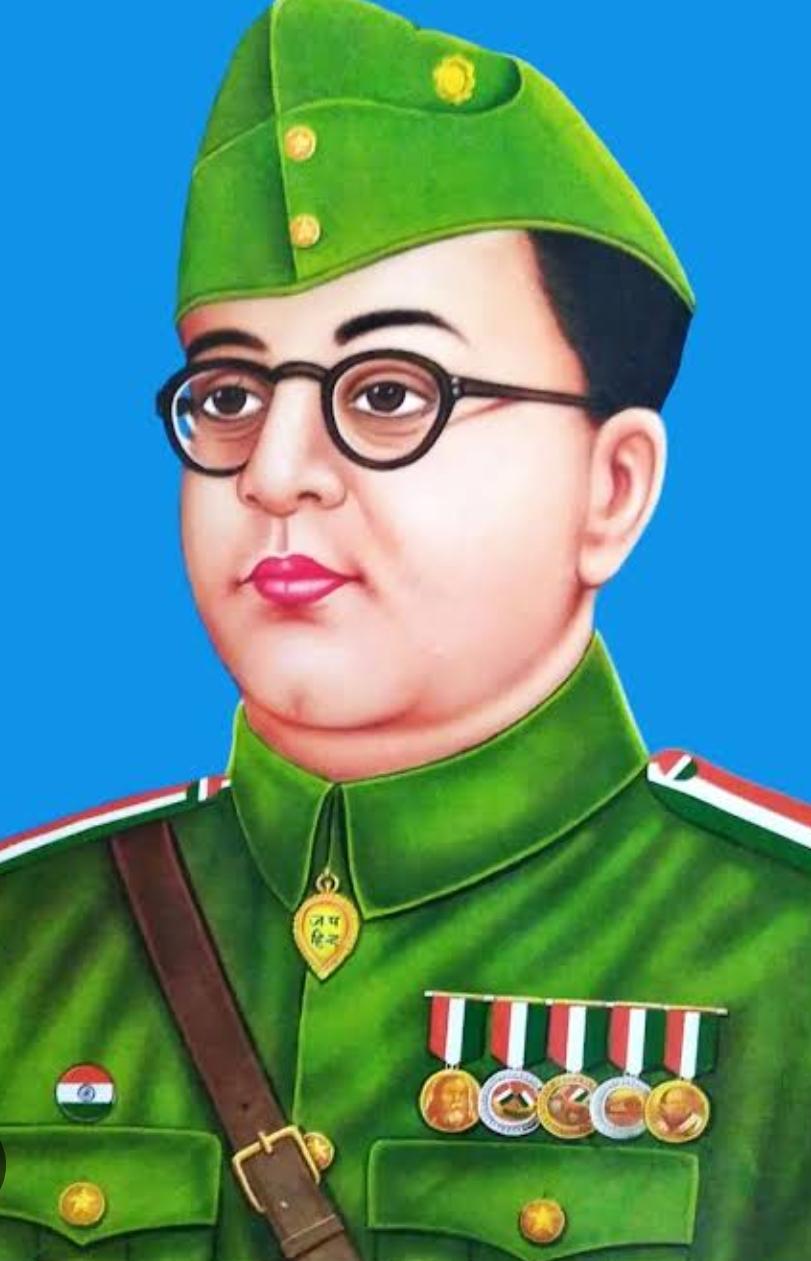Subhas Chandra Bose: The Fearless Patriot of India
Subhas Chandra Bose, fondly known as Netaji, was one of India’s greatest freedom fighters and visionaries. His life was defined by unyielding courage, deep patriotism, and a relentless quest for India’s independence. Through his leadership of the Indian National Army (INA) and his revolutionary ideals, he became a symbol of determination and national pride.

Early Life and Education
Subhas Chandra Bose was born on January 23, 1897, in Cuttack, Odisha, to Janakinath Bose and Prabhavati Devi. A brilliant student, he completed his education at the Scottish Church College in Kolkata and later went to Cambridge University in England. Although he passed the Indian Civil Services (ICS) examination, he resigned from the post, declaring that he could not serve a foreign government ruling over his own people.
Role in India’s Freedom Struggle
Bose joined the Indian National Congress and quickly rose through the ranks due to his strong leadership and nationalist ideals. He served as the President of the Indian National Congress in 1938 and 1939, but ideological differences with Mahatma Gandhi and other leaders led him to form the Forward Bloc — a party dedicated to achieving complete independence from British rule.
Formation of the Indian National Army (INA)
During World War II, Bose sought international support to free India. He traveled to Germany and Japan, where he gathered Indian prisoners of war to form the Indian National Army (Azad Hind Fauj). With the slogan “Give me blood, and I will give you freedom!”, Netaji inspired thousands to join his mission. The INA fought bravely alongside the Japanese forces in Southeast Asia, aiming to liberate India from British control.
Leadership and Vision
Netaji’s leadership was marked by discipline, bravery, and selflessness. He believed in the power of unity and the importance of sacrifice for the nation. His vision of a free India was built on equality, justice, and self-reliance. He promoted gender equality by forming the Rani of Jhansi Regiment, an all-women’s combat unit within the INA — a remarkable step for its time.
Mysterious Disappearance
In 1945, Subhas Chandra Bose reportedly died in a plane crash in Taiwan, but the circumstances surrounding his death remain one of India’s greatest mysteries. Many believe that he survived and continued living in secrecy. His mysterious disappearance has kept his legacy alive in the hearts of millions.
Legacy
Netaji’s indomitable spirit continues to inspire generations of Indians. His slogans, such as “Jai Hind” and “It is blood alone that can pay the price of freedom,” remain etched in India’s history. Statues, memorials, and the Netaji Subhas Chandra Bose International Airport (Kolkata) stand as tributes to his enduring impact.
Conclusion
Subhas Chandra Bose was not just a leader; he was an idea — an embodiment of courage, sacrifice, and undying love for the nation. His dream of a free, strong, and united India continues to guide the country’s youth even today.
“Freedom is not given — it is taken.” — Netaji Subhas Chandra Bose

